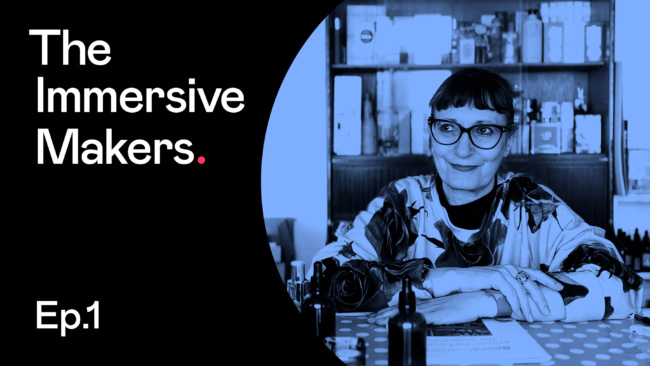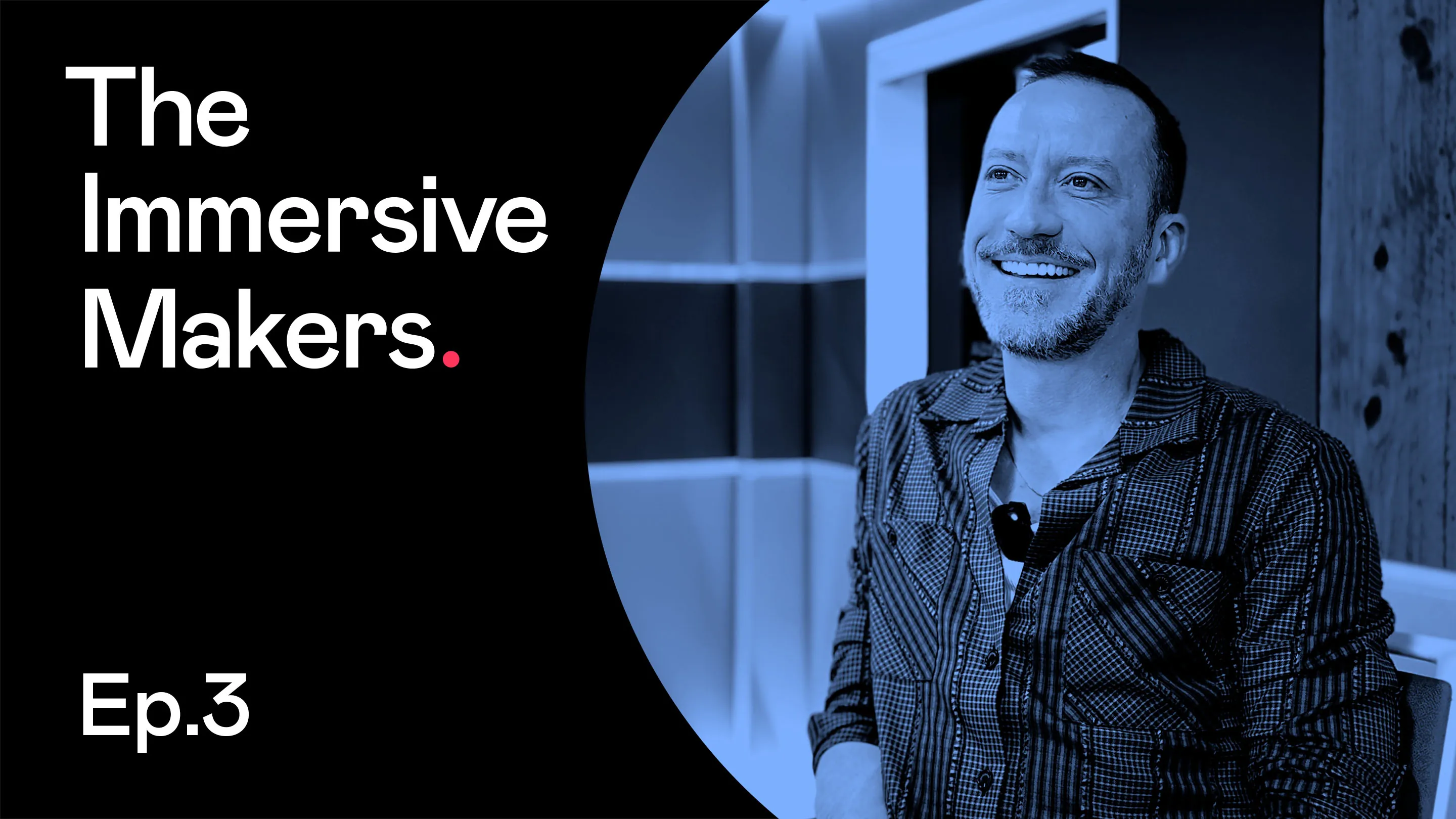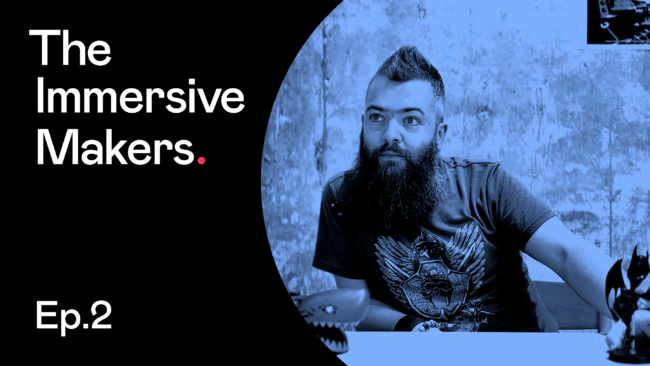
Musings from creators on what ‘immersive’ means to them, to inspire brand builders everywhere.
Every day each of us connects with the world at large. From emotive design to technological experiences, new dimensions impact us, changing our connections and taking us on a journey in different directions.
Which is why at Coley Porter Bell, we are talking to people at the forefront of creating and designing immersive experiences for a range of sectors and audiences.
This series of interviews will unpack how these creators build distinctive, intelligent ways to engage audiences and share how brands can tap into immersive experiences to create better relationships with their consumers.
Baylen Leonard, Country Music Connoisseur
Hailing from Tennessee and flourishing in the UK, Baylen Leonard has established himself as a leading broadcaster, DJ, and currently hosts a radio show on Absolute Radio Country. Another notable achievement is his founding of The Long Road, a country music festival, now in its sixth year, of which he’s Creative Director. He’s also Co-founder and Head of Music for Holler, a digital platform for country music news.
In our latest installment in the series, we delve into the vibrant world of country music with Baylen. He shares his insights on the genre’s growing popularity, the impact of artists like Beyoncé, and his passion for preserving Appalachian culture through music.
Check out the full interview with Baylen below, where he discusses the journey of creating a successful music festival and the importance of storytelling in such ventures.
Stay tuned for more enlightening conversations with creators as our series continues to unfold.
Tell us a bit about yourself.
I work in country music. I run a festival, I’m on the radio, and I run a digital platform for country music news.
I’m from Tennessee originally, so it’s kind of in my DNA. Although I tried not to do country music for a really long time, because a lot of time when you come from something you want to get as far away from it as you can. But after being in the UK for quite a while, I realised I was a little bit homesick and country music was having a moment. And I always think it’s probably good to go with what you know.
What’s behind the current popularity of country music?
I think that more people realise that country music is extremely varied. Whether we’re talking about the sound of country music, the themes that it talks about or the type of artist that does it, there’s something in country music for everyone.
For the past at least five years, country music has been the biggest growing genre in the UK, ahead of all other genres. And it continues to grow. And then of course, Beyoncé comes along and raises the game again.
How has country music evolved?
Diversity in country music has been something that has always been a little bit of an uphill battle. Even though there have always been artists of colour, artists of different sexualities, different classes, even geographically, that’s always been there. It’s not always been necessarily that obvious to people looking in from the outside, and nor have they been as celebrated as maybe they should have been.
They’re of course country purists that don’t like what Beyoncé’s doing, but they also don’t like what Taylor Swift did or what Shania Twain did. And also, people didn’t like Johnny Cash when he went a bit rocky because they said he was too rockabilly. People didn’t think that Patsy Cline was country when she added orchestrations and strings to her music. And all of those things have become absolute bedrocks of country music.
This debate about what is and what isn’t country is as old as the hills, as my momma would say, and it’s not going to stop. And I think that’s good.
But what Beyoncé has done is brought a load of people into country music that maybe would have never tried it before. Also, every artist on that Beyoncé album, their streaming numbers went up, you know, hundredfold. And it’s been good for everybody. You know, if Dolly Parton approves, who are we to say? You know, like Dolly Parton’s stamp of approval, please don’t argue with Dolly. Please.
You’re a big fan of Dollywood. why is it special?
I grew up an hour and a half away from Dollywood and I’ve been there more times than I can literally count. It’s just a fun day out and you can dig into the Dolly side of things if you want and really kind of go down the Dolly History Road and or you can just go and ride roller coasters and scream and have a have a good time.
But also it is about keeping the Appalachian Crafts alive as well. So the whole area that Dolly’s from and that I’m from is called the Appalachian Mountains and a lot of country artists come from there. There’s very specific cultural things about the Appalachian Mountains and being from Appalachia and crafts and the way of farming and food. And because the way we live now and people travel and hillbillies like me decide to leave Appalachia, that culture could be at risk of dying away. You know, who’s canning and preserving their food anymore. And Dollywood also is somewhere that keeps those things alive.
Tell us about The Long Road festival.
When I first started looking to do a festival, there wasn’t really a country music festival the way that I think of as a festival. There wasn’t kind of an outdoor camping weekend long country music festival at that time. So I had a lot of conversations with a lot of different people and a lot of different organisations and venues and all this. It was just kind of, you know, not really getting anywhere with it.
And then at some point, U-Live, which is a big live events company, also had the idea that they wanted to do a country music festival. And so they were asking around about who, because they didn’t know anything about country, but they knew how to do festivals. And I didn’t know anything about festivals, but I knew country. And so we found each other and we met. And I said, Oh, well, you know, my idea for a festival has always been this, which is all the different sides of country music, all the different sounds, you know, embracing diversity, it being a really warm, welcoming atmosphere, showing that country music is more than people think it is, but also being really careful about the experience that you have when you’re there.
I didn’t just want to throw up a tent and the stage in the middle of a field and call it a festival. I wanted it to be really environmental and experiential. And they were on board and we started doing a festival.
How did you decide on the name?
When the festival started happening and we were playing with names, I said I’ve had this name in my head for a really long time, The Long Road and it was good because it also it gave us a starting point for what it looked like and kind of what it felt like. It gave us a real starting point for the creative. It was really nice to have quite a visual logo that conjured up something in people’s head to start with.
There’s actually a journey around the festival that you take which is there if you know it, but we don’t hit people over the head with it too much. So it it’s a multi-stage festival and the way that it starts is if you’re a country artist growing up where I grew up in Tennessee, you probably start by playing a guitar and singing songs on your front porch. So we built a front porch and the look of that is actually based on the house that my dad grew up in and we had film set designers designed. This smoke comes out of the chimney. There’s moss growing up it.
And then when you start getting a little bit better and you decide to move off to Nashville, you start playing in the honky-tonks of downtown Broadway. And so you know, we have a honky-tonk stage and kind of a bar stage.
And then you start touring. So you spend a lot of time on the Interstate, and so we have the Interstate stage.
And then once you’ve really put in your hours and your miles touring, you finally make it to the mainstage, which is our rhinestone stage when you become a big star.
And so that’s kind of the journey that you take on the stages around the festival.
What advice would you give someone starting their own festival?
The main thing I would tell them is don’t. And if they were insistent, I’d say, well, it’ll take over your life and it’ll be 98% stress and 2% really great. And you’ll be really proud of you when it happens.
The festival needs reaching out to the community, you know, when we pick the place to do it. You can’t just plop a festival down in somebody’s community. You have to go there and host a town hall and tell them, hey, this is what we want to do and this is why we think it’ll be good for you guys. We want to minimise disruption to you because we are aware that for weeks there’s going to be huge amounts of tractor trailers and tractors and police and diversions and 10s of thousands of people coming and going, and, you know, huge, big tour buses on your tiny little roads. We want to be a good neighbour. We want to be an asset to your community.
We looked at a lot of places to do the festival and it has to feel right. It has to have all those infrastructure things that you don’t know about.
How many toilets do you need for 10,000 people? Are there pipes underneath here? Are there lines overhead? Wi-Fi and water and transport in and security? You know, all of these things that you just would never think about.
I would say find the people that know the things that you don’t know and let them do it.

